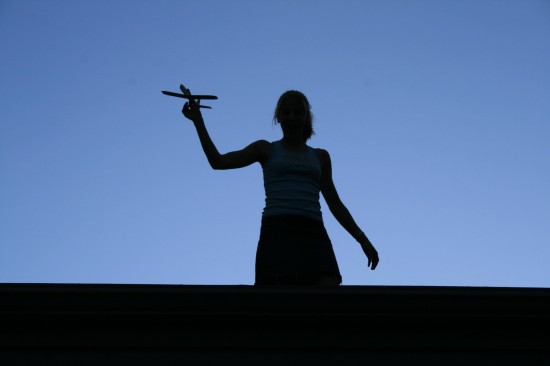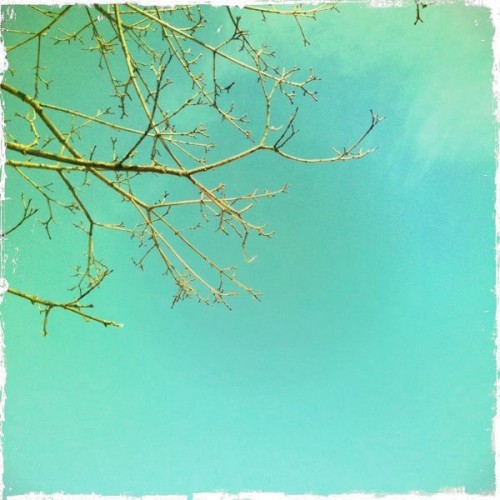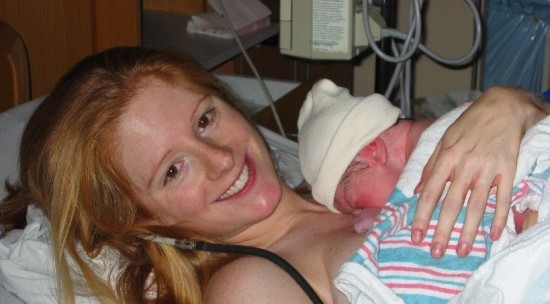I suspected I was going to enjoy A Double Life: Discovering Motherhood by Lisa Catherine Harper. I didn’t, however, imagine that I’d devour it almost in one sitting. I adored Harper’s book: it is full of careful, scientific details that were new to me, it is written in eloquent, beautiful prose, and more than once it made me gasp with identification. The terrain of Harper’s memoir – pregnancy, birth, the first months of motherhood – is familiar, but the honest and funny voice in which she tells it, and the nuanced observations with which it is filled, are unique.
The first half of A Double Life is concerned with conception and pregnancy. Ella, Harper’s daughter, is conceived on 9/11, and Harper describes how that fall there “seemed to be darkness everywhere.” There are fascinating details about the development of a baby from zygote to blastoscyst to fetus, the physiology of pregnancy, and about Harper’s own family history.
The book began to really gather power for me when Harper talks about the first time she felt her baby move inside her. She hints at what is to come when she says,
But something infinitely more primal and more immediate had happened on the couch, and its aftermath was not unlike the seconds after a small earthquake, when everything you know about the world is cast into doubt, when your own terra firma crumbles beneath you and you are certain only of uncertainty.
A Double Life reaches the crescendo of its impact as it addresses the profound, irrevocable change that motherhood represents. As Harper describes it – and I agree with this characterization – it is a complete and utter dissolution and then rebuilding of identity. This begins with a harrowing description of labor, as close to the real experience as I’ve ever read. I felt like I was back in the room where I had my daughter, during my third hour of transition, begging my midwife to put a bullet in my head and just cut my daughter out (that really happened), when I read this:
In the middle of that pain, at pain’s deep center, it was dark. In that dark there were no others and there was no language. It was silent and it was deafening, it was still and it was cyclonic.
Still and deafening, still and cyclonic: I’ve never read labor more viscerally evoked. At the end of her long and arduous labor, Harper delivers her daughter, Ella. When they return home she and Ella sink into that otherworld known as the fourth trimester, where the standard demarcations of day and night crumble and life as it has been known fades away entirely. Harper loves these days, even while acknowledging their stultifying exhaustion. “The intense passions that I had sought most of my young life seemed shallow in comparison to the deep tides of contentment that pulled at me now,” she writes, and for a period of time she and Ella exist in a world where all they need is each other. It is a calm and joyful time, a “steady stream of wonder.”
After about nine months, however, Harper’s sense of herself as a mother in the world begins to feel more complicated. At one point, noticing that Ella’s eyes follow her around the room, she “began to understand ‘mother,’ its permanence fixed to me like a shadow” and we intuit that Harper is growing aware of the permanence and immutability of the role.
In the last few chapters of A Double Life Harper grapples with her most complex and ambivalent feelings about motherhood and in so doing begins to face essential questions of personhood. The nearness – twinned-ness, in fact – of life and death, a theme that surfaces during her pregnancy, recurs in these final chapters. For Harper, giving birth – giving life – occasioned a reckoning with death. This awareness also shapes her experience of her young daughter’s life: “Motherhood made me familiar with this mortal creep of time.” This is of course intensely familiar to me. In fact it made me consider that my own preoccupation with being present and aware and my profound sadness about time’s passage likely have their roots in my being a mother. I don’t think these are new wounds for me, but they are certainly rawer now that I watch my own children grow.
It was a sort of miracle to be able to hold these two moments – of life, of death – in mind at once; to be acutely conscious of both the present and of the presence and nearness of loss; to hold in my arms the evidence of life and death, for that is what my daughter was: an inspired, poetic fact. She gave me an accidental genius, and if it filled me with night terrors, it also filled me with song.
At the end of A Double Life, Harper seems to move into a period of heightened sensitivity, into a porousness that I recognize intimately. She describes a moment in church as “A pause in my life and something strange possessed me … Something had visited me. It came, imparted, and was gone. .. I was not so changed so much as infused.” This reminded me of a moment in my early 20s in the crypt at Assissi, a memory I return to again and again because it was a harbinger of what was to come later in my life. I’ve had other moments – few, but indelible – like this in my life, too. They remind of the presence of something greater, a design vaster than I can understand, and, as Harper says, infuse me with the current of humanity itself.
In her memoir’s second to last chapter, Harper confronts the twisted world of the mommy wars, and suggests that the essential problem is not, essentially, whether a woman works outside of the home but the fact that the world at large has utterly devalued the work of motherhood and the experience of life inside the home. She realizes that conversation at her baby group sometimes feels like “a storm of all that nothing,” but simultaneously finds herself deeply interested in the details of domestic life. Ultimately Harper comes to a conclusion that I identify with strongly:
I felt I belonged in neither world: much of my energy was invested in raising Ella so I couldn’t fully claim my professional identity, but neither could I identify with what seemed to me to be the petty concerns of motherhood. I loved my daughter and I loved my home. I did not love the stay-at-home culture of mothering.
I guess this shouldn’t surprise me, given that Lisa and I connected when she read my essay in the Princeton Alumni Weekly called “A Foot in Two Worlds.” Harper vows to “move between my worlds of teaching, writing, and mothering, and I tried hard to see how each inflected the other,” which reminded of Anne Tyler’s comment that “since I’ve had children I’ve grown richer and deeper. They may have slowed down my writing for a while, but when I did write, I had more of a self to speak from.” Perhaps instead of interpreting my life as fractured, and bemoaning the losses in that, I ought to celebrate the ways in which I am a kaleidoscope (one of those recurring tropes in my writing). Each of the various slices of who I am, of which I inhabit in every single day, can, and should, inform – indeed, enrich – the other.
A Double Life doesn’t reach a single firm conclusion on the work/home tension. Instead, Harper proposes that mothers ought to feel more united than opposed, and that we should drop the false bifurcation of “working” and “staying at home” identities. Harper asserts that “what bound us together was the fact that we found our children interesting, that we were inspired by them, that we had allowed our lives to be changed by them.” I may have initially fought this change with everything I had, but I’ve certainly allowed it now. The new reality of who I am as a mother – not that new anymore, in fact – floods every cell of my being on a regular basis, bathing me in wonder and gratitude as much as in impatience and sharp sadness at the speed with which it all passes.
The very last scene of A Double Life takes place, tellingly, as Harper sits working at her desk. Her daughter crawls up to her and commands her attention; there, sitting at her desk, her baby at her feet, we see the disparate strands of identification and person come together in a single compelling image. Harper reminds us of where she begins her memoir, with researched, scientific awe at conception and pregnancy, and then touches on the various highs and lows we have experienced with her over 232 pages. And, with the moving honesty and elegant prose that fills A Double Life, Harper concludes:
Out of nothing she had become something, and I had become something more. If the crushing love that I felt for her made me newly and forever fearful of mortality, and if, on some days, it made me tired and irritable and beside myself with despair and fury, there was something else, too, something with wings rising now like hope, or gratitude, or grace.



